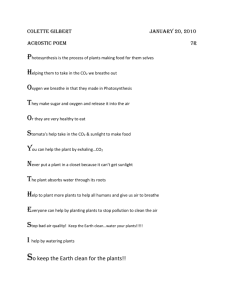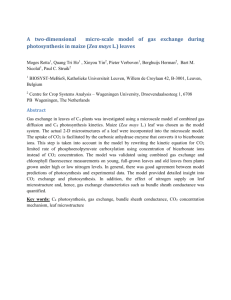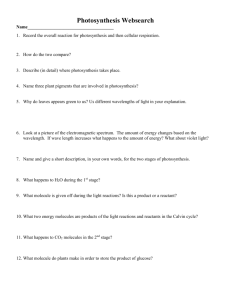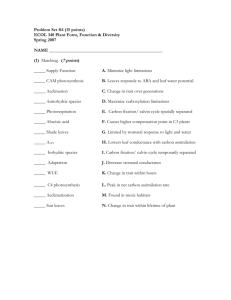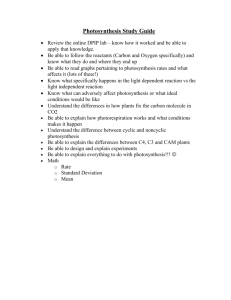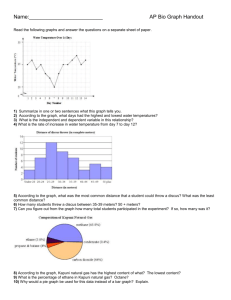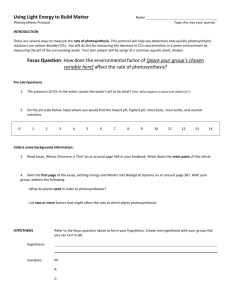Leaves - Faperta UGM
advertisement
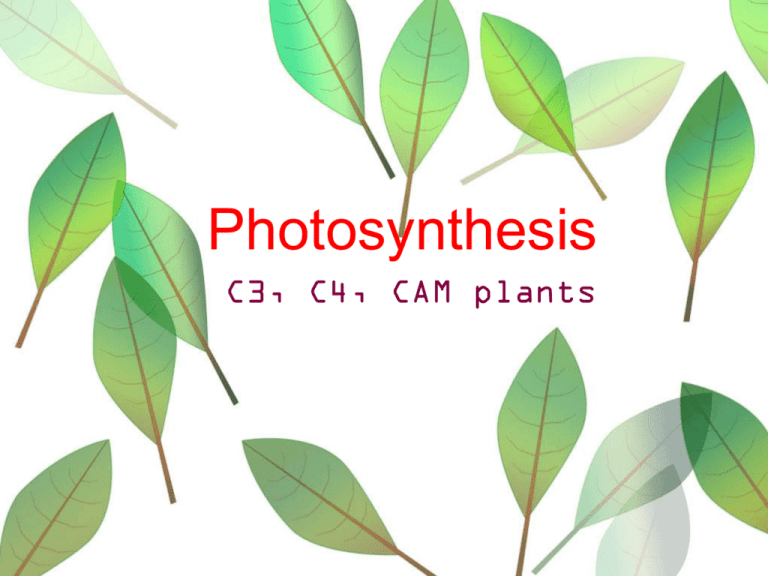
Photosynthesis C3, C4, CAM plants Definition • C3 plants: all of carbon fixation and photosynthesis happens in mesophyll cells just on the surface of the leaf. • C4 plants: carbon fixation and photosynthesis split between the mesophyll cells and bundle sheath cells. • CAM (Crassulacean acid metabolism)plants: photosynthesis takes place in the mesophyll cells, but carbon fixation (and opening of stomata) takes place at night and the Calvin cycle happens during the day. C3 Plants • Called C3 because the CO2 is first incorporated into a 3-carbon compound. • Stomata are open during the day. • RUBISCO, the enzyme involved in photosynthesis, is also the enzyme involved in the uptake of CO2. • Photosynthesis takes place throughout the leaf. • Most plants are C3. C4 Plants • Called C4 because the CO2 is first incorporated into a 4-carbon compound. • Stomata are open during the day. • Uses PEP Carboxylase for the enzyme involved in the uptake of CO2. This enzyme allows CO2 to be taken into the plant very quickly, and then it "delivers" the CO2 directly to RUBISCO for photsynthesis. • Photosynthesis takes place in inner cells (requires special anatomy called Kranz Anatomy) • C4 plants include several thousand species in at least 19 plant families. Example: fourwing saltbush pictured here, corn, and many of our summer annual plants. C4 Pathway C4 cycle CAM Plants • Called CAM after the plant family in which it was first found (Crassulaceae) and because the CO2 is stored in the form of an acid before use in photosynthesis. • Stomata open at night. • CAM plants include many succulents such as cactuses and agaves and also some orchids and bromeliads Cactus Orchids Bromeliads Agaves CAM Pathway Differences C3 CO2 acceptor is 5c RUBP C4 CO2 acceptor is 3c PEP CO2 fixing enzyme is RUBP carboxylase CO2 fixing enzyme is PEP carboxylase First product of photosynthesis is PGA (3c) First product of photosynthesis is oxaloacetic acid (4c) CO2 fixation occurs once only CO2 fixation twice – Kranz anatomy
